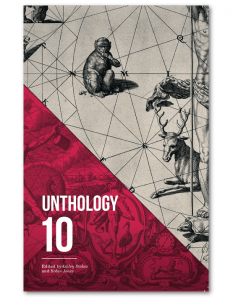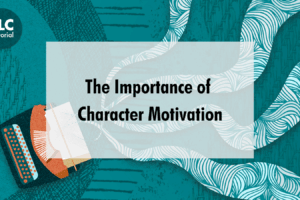The Second Coming of the North Surrey Gigantopithecus
PREVIOUSLY, in The Art of Not Giving In, I described how I went from abandoning my novel, The North Surrey Gigantopithecus in 2017 to being around to witness its publication by Unsung Stories in 2021 to some acclaim. I had seen the story as a voice exercise and was besotted by the idea of literary voice. Things started to change when I sent the book to a friend who runs an imprint specialising in voice pieces.
I made the changes:
I didn’t think anything was going to happen when I submitted the book. I was so numb at the time. All I could see in my personal and professional life was the road ahead running out or ending at a cliff. It was not a good time generally. I didn’t really give this submission much thought. I certainly wasn’t waiting in nervous anticipation.
However, when feedback came, feedback was positive. The editor liked the book, thought it funny, would like to publish it but suggested some changes.
Did I man the barricades of my artistic integrity and refuse to taint my vision and dream weaving?
Did I bollocks. I made the changes.
The emphasis was on shortening the book to make it punchier. It wasn’t a long book, 68,000 words, but I shaved it down to 48,000. This I did by removing a lot of lore (Kevin doubled-down and repeated the same things over and over again, which I had thought amusing (like in a Stewart Lee routine) or indicative of obsession but must have seemed like milking the jokes to a sane person). I also removed all the passages in the novel that hinted at why Kev is such a moonbarker. I had always liked a line in one of the early Hannibal Lector novels where he says words to the effect of ‘don’t try and explain me, I just happened’. Hannibal would have stayed far more interesting if he had remained unexplained and shunned all those cash-in sequels and prequels. I allowed Kev to just happen.
Rewriting The North Surrey Gigantopithecus for the 760,848th time, did, of course, rip me away from other projects, another novel and the short stories I was writing between drafts of that novel. Meanwhile I had written a story called Hardrada with the aim of sending it to Dan Coxon’s anthology series Tales from the Shadow Booth. I had known Dan from my time of editing Unthology and in the past we had had a brief chat about his own shift from writing straight-literary fiction to, with great aplomb, writing and editing literary horror. Furthermore, as he’s a denizen of North Surrey, I had occasionally joked with Dan about whether he had seen the Gigantopithecus in Epsom. I was lucky enough to have Hardrada accepted for Shadow Booth Vol.4. In the subsequent conversation, Dan, who was now editor of Unsung Stories, asked me if I had anything else, so I sent him a gigantopithecus.

The abbreviated, backstory-free gigantopithecus.
Soon I had two offers.
Both editors had wanted the shouting and embellishments added to Kev’s core beliefs softened, and both wanted more emphasis on Kevin as a father wanting to reconnect with his son, Kyrylo, aka Tarzan. Dan in particular wanted Kevin not to be the butt of the joke continually. That Kevin was the butt of the joke continually was OK in 2012, but not post-2016. When all caution has been thrown to the wind, the teller of cautionary tales turns up spouting tactical wisdom when the arrow is already stuck in the king’s eye and black knights have gained the ridge and are hacking their way toward us. Also, annoyingly, all the material I had taken out about why Kev is a moonbarker had to be put back in.
You can kind of see how the last two editorial points help create a type of character that the recidivist part of myself, the side of me that is still sixteen and thinks I must be a sort of Left Bank, Gitanes-smoking, trenchcoat-flapping, 1973 European intellectual Kundera copycat with stories only of alienation, dislocation, moral decentredness and lots of undressing in grey hotels in grey arrondissments regards as trivial:
A Sympathetic Character:
Making Kev sympathetic meant making Kev the father more prominent. I must say I was resistant to making fatherhood a focal point of the story. It didn’t feel right to me, nor do I think I am equipped to write about fatherhood as I’ll never be one (not that there’s anything wrong with my knackers; I’ve just never wanted any children). Kevin’s story is, though, about childhood, a lost childhood, a sad childhood, not leaving childhood behind, childhood’s end and Kevin’s ‘slow trek to rediscover’, as Albert Camus once described, ‘those two or three great and simple images in whose presence his heart first opened.’
Toning Kev down and deepening the backstory and the family side of things – without sacrificing what I thought was at the heart of the book – did work. It created a different, but more appealing, I hope, unity. With his language reined in from its extremities, Kevin’s tragic obsession is laid bare precisely because linguistic overkill does not distract from it. There is still some shouting and the book is still funny (I hope), there is still plenty of madness and mayhem but it all seems a bit more deadpan. People seem to care more about what happens to Kev rather than just laughing at the shouting.
This is probably a good thing. Outside our windows, the shouting has not stopped, so maybe we shouldn’t laugh in case we laugh it off.
The Point of Abandonment:
A question is, why didn’t I, or my beta reader, realise all this about the book before? As the consultant on a 1000-plus TLC manuscripts, the publisher of around 40 books, a creative writing lecturer for over twenty years, the author of one novel, a collection and thirty or so uncollected stories, should I have not seen this myself? Why was it agreed I would bury the story, not further adapt it, seeing as a more classic and emotive story lurked just below the surface texture of the prose? When I did revise it, I made hardly any changes to the story. All I did, really, was tune down through the radio waves to a lower band.
It’s hard to say. Maybe it was because it’s difficult to believe that anything really unusual now will be taken up. The whole project was folly and I should have written something more commercial, like a really shitty Nadine Dorries novel that lies about what life in this country is like, and panders to black-top tabloid consumers with the reading age of eight-year-old children. Maybe I was too attached to the original ‘comic inferno’ idea of the novel and Kevin’s more ‘comedy voice’ and hence threw the ditch out with the ditch water? Perhaps, as I had already written six drafts (I usually write two, maybe three), I was exhausted with it. Maybe I was just exhausted.
On the one hand, I suspected the book was the best thing I had ever written (perhaps because I had finally shed myself of the tourniquet I had acquired during my MA year, that fiction is a higher former of autobiography and you should turn yourself into a sort of pundit for the gripes and woes of your kind, type, class, region or indicatively miserable self). On the other hand, I felt embarrassed by the book. If anyone asked me what I was working on, I was more comfortable explaining how I had come across the idea rather than just blurting that I was writing a novel about Bigfoot hunters in northern Surrey. Maybe I was tired of being embarrassed by what I do, of choosing this path in life and choosing, in some ways, to go down with the ship. I have to admit, at the time I was taking a bit of a kick-in generally. I was in the foetal position in the pub carpark and the toecaps were coming in hard and fast.
I did learn lessons from abandoning the book.
I applied those lessons when I was lucky enough to have the chance to rewrite it.
A side-point here was that I was lucky too to know a few people in the small press field who have in some ways come up with me and knew who I was and what my writing is like. I am terrible at networking in person with other writers, influencers, editors, agents and arts organisations, but I have networked a bit online and had also met a lot of people through editing Unthology. No one did me a massive favour and published any old bollocks of mine because we went to the same school. I had, though, ‘gone to the party’, even if I’d stayed in the kitchen. I had not quite sat sulked in my scriptorium and expected the world to come to me.

Another lesson I have learned is not to overstress the opinion of one beta-reader. Although common wisdom suggests we should write with one reader in mind, that person’s judgement can become withering, eviscerating, especially if it is someone you desperately want to impress. At the time, I did feel that if my beta didn’t like my work, it was dead, along with another part of me, because I am so insecure that my writing is the only part of me that I like. The rest is scattered and missing. The rest is just fat. I have now assembled a wider pool of friends to canvass when I have new work (which also means I don’t overburden one reader, too). This group is called Beta Flight, which is the name of the reserve team of the Canadian superhero team Alpha Flight, which itself features a character called Sasquatch, so there is a conspiracy there, too. This cannot be a coincidence.
Although I did initially feel somewhat exasperated at the thought of rewriting the novel again (four times, actually), I did also reacquaint myself with the joy of being edited. Every writer does need an editor after all. That I spend a lot of my time editing and consulting on the work of other writers does not mean I don’t need editing myself. No one can see the forest for the trees, even me, especially me. It’s quite easy to see an editor as a hostile meddler or homogenizer, but I now see that an editor is a collaborator and I enjoy the collaboration. This stage of the process is actually great, a lot of fun. Everything else is so very lonely.
I had some luck. I had some friends. I had a little faith left. I’d had a break in both senses of the word. The creature came back from of the woods to show itself.
I have written recently, in the Finding Gigantopithecus piece for Gingernuts of Horror for one, that I very nearly abandoned this project in 2011 because it was too daft. If you had said to me then that this project will take ten years to realise itself, its permutations and convolutions will distress you greatly, you’ll have to write it ten times, you’ll suffer derision from others and yourself, that for you the writing of this book will be almost as self-destructive as Kevin’s quest for the North Surrey Gigantopithecus is for him, that at the point of abandonment you will feel that you have given everything you have in life to writing and received absolutely nothing back but ruin and rejection, I would probably not have embarked on the expedition.
Maybe, maybe then, it was always supposed to be this hard. Maybe it needs to be. Maybe this is how it is and always will be. Throughout I was reminded of and greatly bothered by what for me is the most alarming line in all of literature. I very frequently wrote out and boxed for emphasis in my notebooks part of the Doorkeeper’s Parable from Kafka’s The Trial: ‘No one else could ever be admitted here, since this gate was made only for you.’
Unlike in the parable, though, the door didn’t shut.








